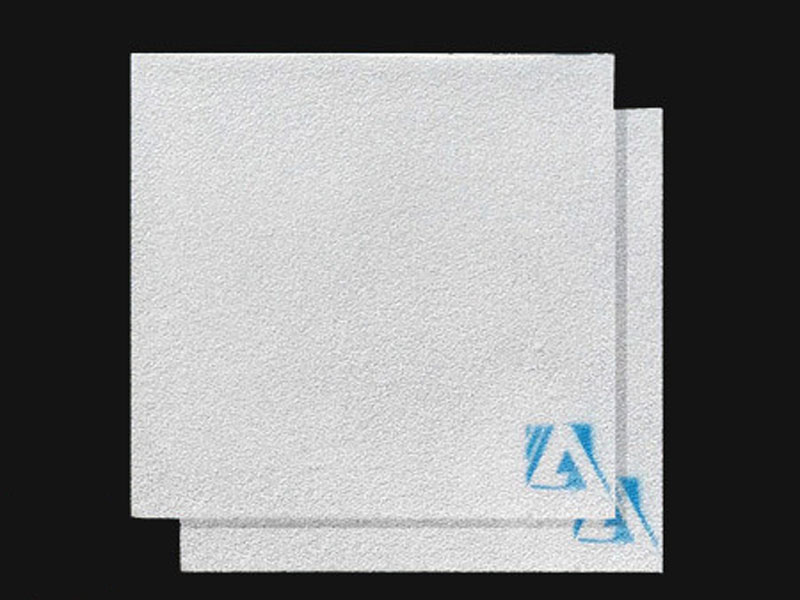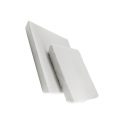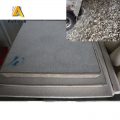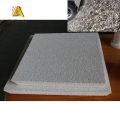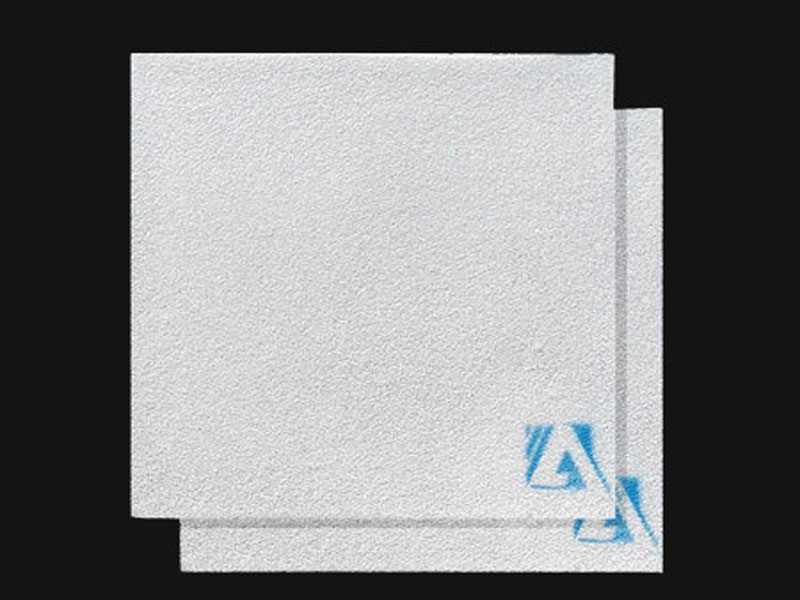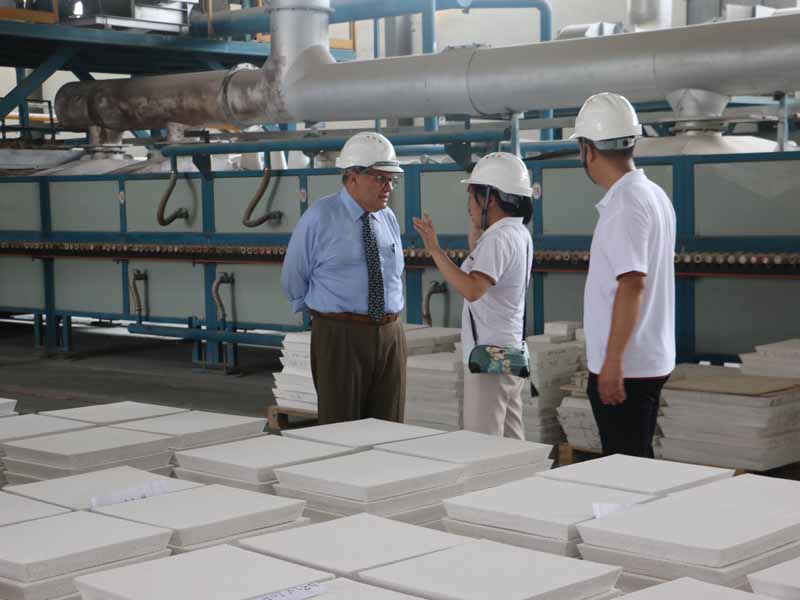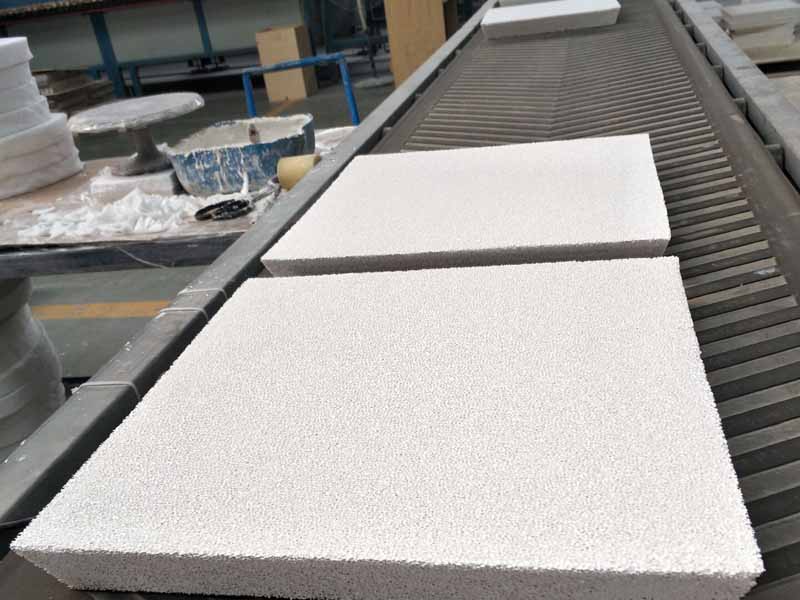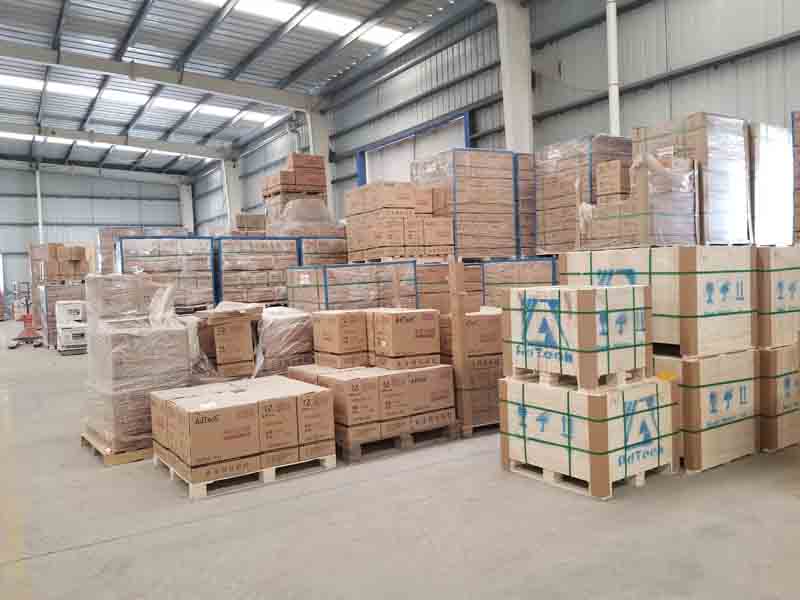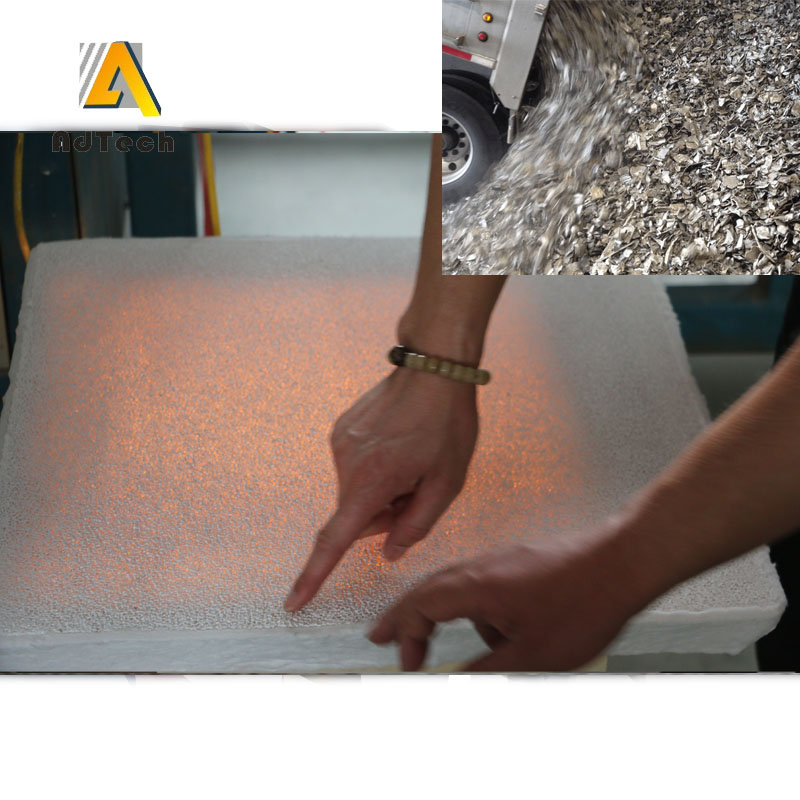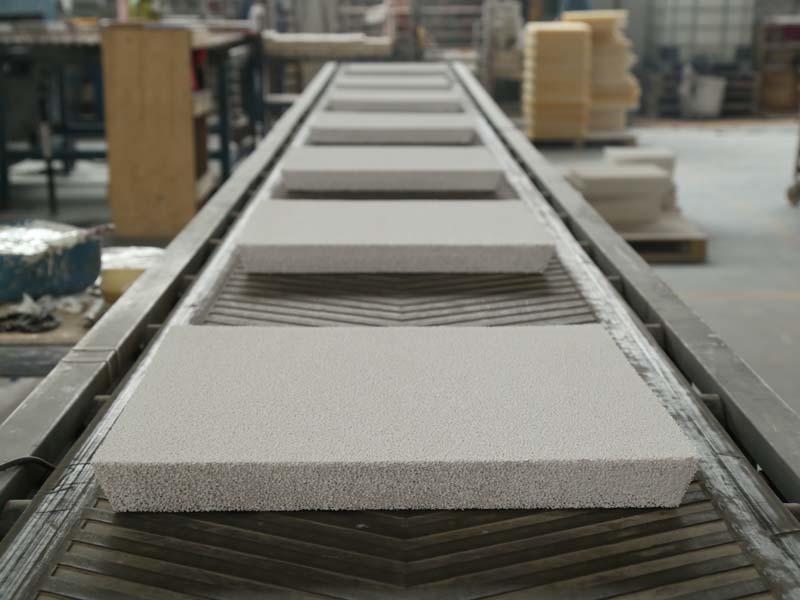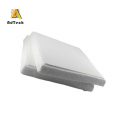Cordierite Ceramic Foam Filter
The main application of Cordierite Ceramic Foam Filter is as a molten metal filter, but currently the filters on the market generally have the disadvantages of low bending strength and poor thermal shock stability.
Therefore, research on high performance foam ceramics has obvious engineering significance and application value.
Foamed ceramics were successfully prepared by using an organic foam impregnation process using alumina as the main raw material.
The amount of dispersant ammonium polyacrylate added to the stability of alumina slurry.
The solid content of the slurry and the amount of the rheological agent carboxymethyl cellulose in the slurry affect the performance of the polyurethane foam.
The effect of pretreatment of the foam on its performance.
At the same time, a certain amount of zirconia powder and titanium carbide particles were added to the alumina slurry, and the three kinds of toughening mechanisms such as phase transformation toughening mechanism, microcrack toughening mechanism and particle toughening mechanism were used to improve Cordierite Ceramic Foam Filter. High temperature performance.
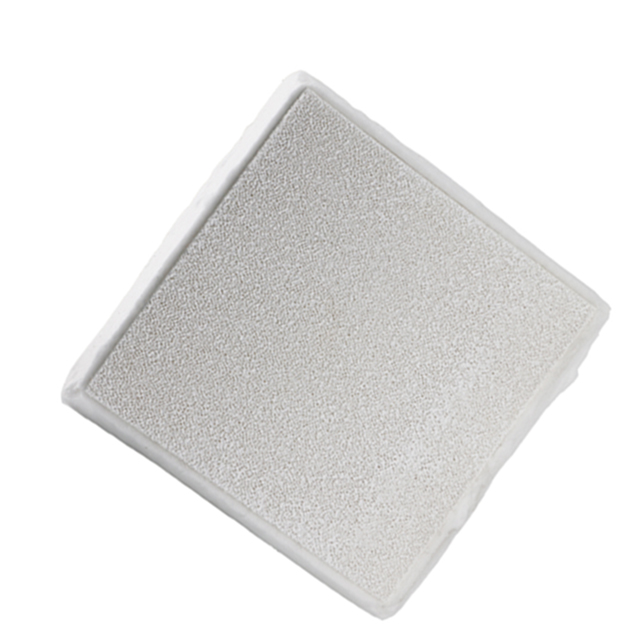
Ceramic Foam Filter Manufacturers AdTech, pls contact sales@adtechamm.com
When the mass fraction is 2% ammonium polyacrylate and the pH of the slurry is 9, a good ceramic slurry can be obtained.
When the solid phase content is 70% slurry and 0.3% carboxymethyl cellulose is added to the slurry, the rheology of the slurry is the best.
The polyurethane foam was immersed in a lye solution having a concentration of 15% at a temperature of 50 ° C for 6 hours, and the performance of the foam was best.
When the zirconia powder and titanium carbide particles are added to the Cordierite Ceramic Foam Filter, the flexural strength and thermal shock resistance of the foamed ceramic filter can be improved. 15% of zirconia and 5% of titanium carbide particles are added to the slurry. At the same time, the obtained ceramic foam filter has the highest bending strength and the highest number of thermal shock cycles, and the bending strength is 2.61 MPa.

